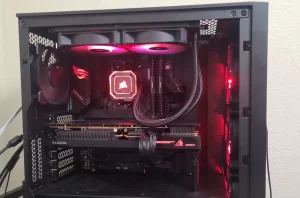The Ultimate Guide to Selecting the Best Industry Products

Finding the best products for your industry can be a daunting task. With so many options available on the market, it can be challenging to determine which products are worth your investment. As a professional, you need to be equipped with the right knowledge and tools to select the best products that will enhance your operations and increase your bottom line. In this post, we will guide you through the essential factors to consider when evaluating products, including quality, cost-effectiveness, reliability, and compatibility with existing systems.
Determine Your Needs and Goals
Before embarking on the product selection process, it’s crucial to determine your needs and goals. Start by identifying the key areas that require improvement or optimization in your operations. For example, if you’re in the manufacturing industry, you may need to invest in equipment that increases productivity or improves product quality. Next, set specific goals that you want to achieve with your product investment. Your goals could include reducing operational costs, improving efficiency, or enhancing customer satisfaction. By understanding your needs and goals, you’ll be able to narrow down your product options and make informed decisions.

Assess Product Quality
Product quality is one of the most critical factors to consider when selecting products for your industry. You want to invest in products that will deliver consistent and reliable results over time. To assess product quality, look for products that have been tested and proven to perform well in your industry. You can also read online reviews and ask for recommendations from other professionals in your field. Additionally, consider the durability, ease of use, and maintenance requirements of the product. A high-quality product will be durable, easy to operate, and require minimal maintenance, reducing downtime and repair costs.
Evaluate Cost-Effectiveness
Cost-effectiveness is another essential factor to consider when selecting products for your industry. You want to invest in products that provide value for money while meeting your needs and goals. To evaluate cost-effectiveness, consider the total cost of ownership of the product, including upfront costs, ongoing maintenance costs, and potential savings. For example, investing in energy-efficient equipment may have a higher upfront cost but can result in significant savings on energy bills in the long run. By considering the total cost of ownership, you’ll be able to make informed decisions and avoid investing in products that may be cheaper upfront but more expensive in the long run.
Consider Reliability
Reliability is crucial when selecting products for your industry. You want to invest in products that you can rely on to perform consistently and avoid downtime and delays. To assess reliability, look for products that come with warranties or guarantees. You can also ask for references from other professionals who have used the product and evaluate the product’s track record for reliability. Additionally, consider the product’s safety features and compliance with industry standards and regulations. Investing in a reliable product will give you peace of mind and save you from potential losses due to downtime and delays.
Check Compatibility with Existing Systems
Compatibility with existing systems is another crucial factor to consider when selecting products for your industry. You want to invest in products that can seamlessly integrate with your existing systems and processes. To check compatibility, evaluate the product’s technical specifications and compare them to your existing systems. You can also consult with the product vendor to ensure that the product is compatible with your existing systems. Investing incompatible products will save you time, effort, and potential costs associated with reconfiguring your existing systems.

Conclusion
Selecting the best products for your industry requires careful consideration of several factors, including quality, cost-effectiveness, reliability, and compatibility with existing systems. By understanding your needs and goals, assessing product quality, evaluating cost-effectiveness, considering reliability, and checking compatibility with existing systems, you’ll be able to make informed decisions that will enhance your operations and increase your bottom line. Remember to document your product selection process, including the factors you considered and the rationale behind your decisions. This will help you track your progress and make adjustments as necessary.
Additionally, don’t be afraid to seek advice and recommendations from other professionals in your field. They may have valuable insights and experiences that can help you make more informed decisions. Finally, keep an open mind and be willing to experiment with new products and technologies that can improve your operations and increase your competitiveness.
In summary, selecting the best products for your industry requires a systematic and thoughtful approach. By following the essential factors outlined in this guide, you’ll be able to make informed decisions that will enhance your operations and increase your bottom line. Remember, selecting the right products is not only about getting the best value for money but also about investing in the long-term success of your business.







